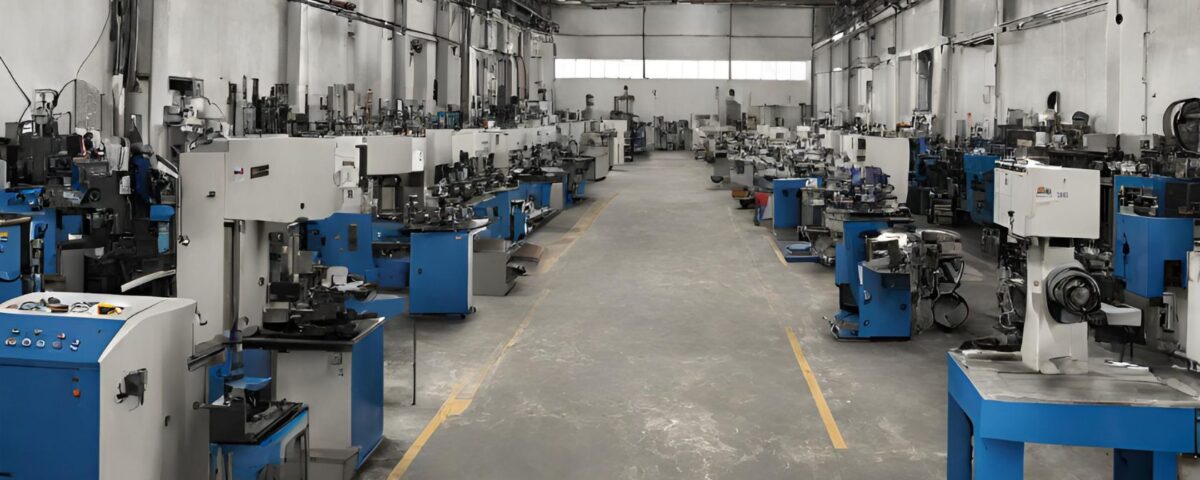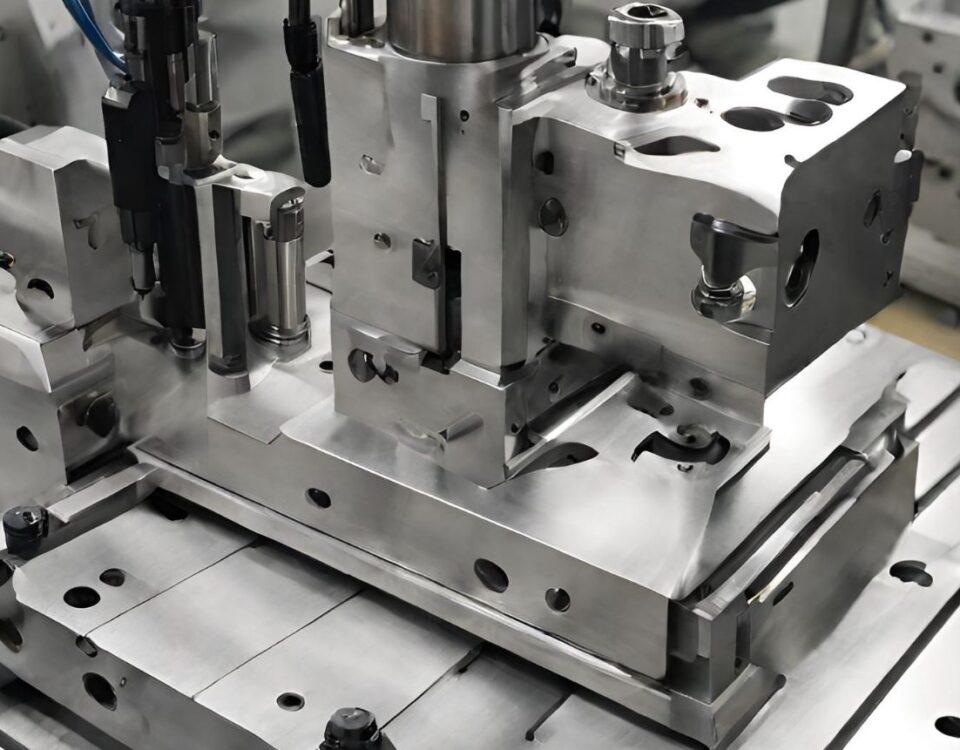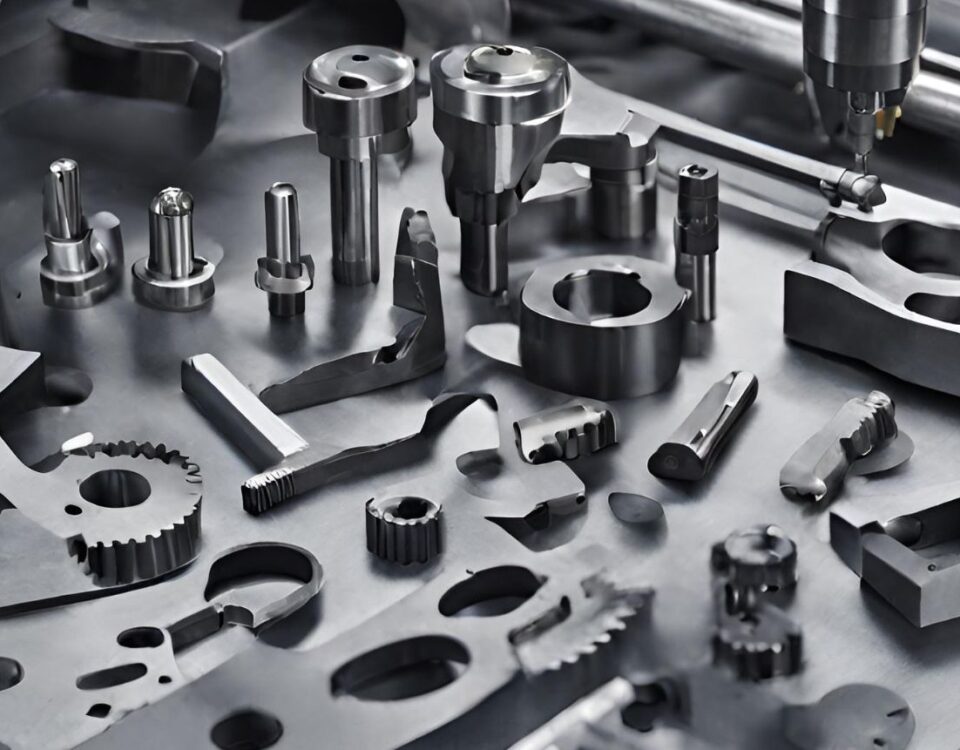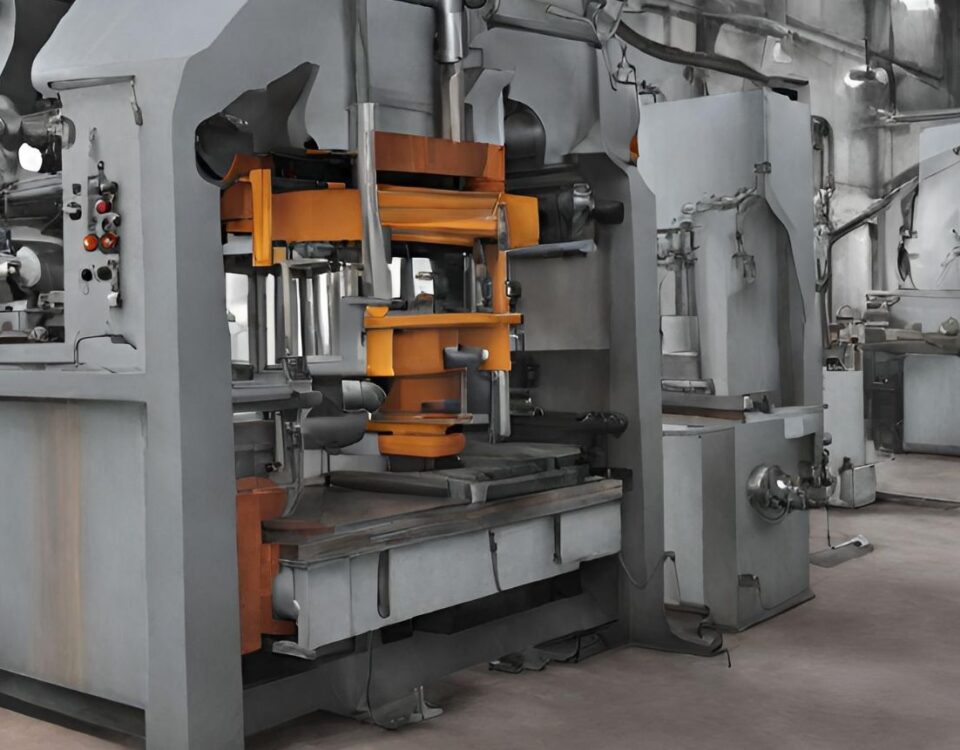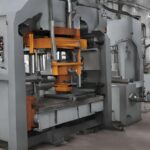
Beginner’s Guide to Aluminum Casting
5 April 2024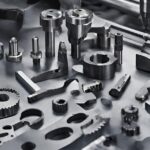
Exploring the Various Applications of CNC Tools
15 April 2024Introduction
In the rapidly evolving manufacturing landscape, sourcing the right machining shop is crucial for any business seeking to maintain a competitive edge. The perfect partner can ensure quality, precision, and efficiency in the production of components critical to your operations. This guide aims to navigate the complex process of identifying and selecting the machining shop that best aligns with your specific requirements.
Understanding Your Machining Needs
Identifying your precise machining needs is the cornerstone of forging a fruitful partnership with a machining shop. This foundational step ensures that the selected partner can meet your project's specific requirements, from the initial concept to the final product.
1. Define Your Project Requirements
Every project is unique, with its set of complexities and challenges. Begin by meticulously outlining the dimensions, tolerances, and the exact nature of the parts you require. This clarity is crucial, as it affects every subsequent decision, from material selection to the choice of machining processes. Additionally, consider the volume of production. Your needs may range from high-volume runs that leverage economies of scale, to more specialized, low-volume projects where precision and customization take precedence. Furthermore, industry-specific certifications can be a deal-breaker. For sectors such as aerospace, medical devices, or automotive, where compliance and standards are non-negotiable, the machining shop’s certifications (like ISO 13485 for medical devices or AS9100 for aerospace) ensure that regulatory requirements are met without compromise.
2. Material Specifications
The material choice directly influences the machining process, affecting everything from tooling to finishing techniques. Whether your components require stainless steel, aluminum, titanium, or specialized plastics, understanding the machining shop's material capabilities is paramount. It’s not just about their ability to source the material but their expertise in handling its unique machining characteristics to ensure the highest quality finish.
3. Quality and Precision
In industries where the margin for error is minimal, the emphasis on quality and precision cannot be overstated. The ability of a machining shop to consistently produce parts that meet stringent tolerances is a testament to their skill, technology, and quality assurance processes. This relentless pursuit of precision ensures that the final products not only meet but exceed the rigorous standards expected by clients in highly regulated industries.
This detailed evaluation of your machining needs not only streamlines the selection process but also sets the stage for a successful collaboration, ensuring that the chosen machining shop is perfectly aligned with your project objectives and quality expectations.

Researching Potential Machining Shops
Once you've established your machining requirements, the next crucial step involves researching potential machining shops to find the best fit for your needs. This phase is about gathering information and assessing each candidate based on their experience, technological capabilities, and quality assurance processes.
1. Experience and Expertise
A machining shop's experience in your specific industry can significantly influence the success of your projects. Look for shops that have a proven track record of handling projects similar to yours. Their expertise in navigating the unique challenges and requirements of your sector can be a significant advantage. An experienced partner understands the criticality of your parts, the regulatory landscape, and the importance of precision and reliability in your industry.
2. Technology and Equipment
The capability of a machining shop is largely determined by its technology and equipment. Advanced machining centers, state-of-the-art software, and a variety of machining processes under one roof are indicators of a shop's ability to handle complex and varied requirements. This technological prowess ensures that they can produce parts with high precision and efficiency, ultimately contributing to shorter lead times and lower costs.
3. Quality Assurance Processes
Quality control is the backbone of machining. Investigate the shop's quality assurance measures and certifications, such as ISO 9001 or industry-specific standards. These certifications are more than just badges; they reflect a shop’s commitment to maintaining high-quality standards in every project. Understanding their process for ensuring quality—from initial design to final inspection—can provide peace of mind and confidence in their capabilities to deliver parts that meet your specifications.
Researching and vetting potential machining shops through these lenses ensures that you select a partner not just capable of meeting your current needs but also equipped to grow and adapt with your future requirements.
Evaluating Capabilities and Services
After narrowing down potential machining shops based on your research, the next step is to evaluate their specific capabilities and services to ensure they align with your project needs. This evaluation is critical for establishing a partnership that will deliver the precision, quality, and efficiency your projects demand.
1. Comprehensive Services
A machining shop that offers a broad spectrum of services provides significant value. From CNC machining to laser cutting and fabrication, a partner with comprehensive capabilities can handle various aspects of your project under one roof. This not only simplifies logistics but also ensures consistent quality across all components. Assess if the shop can offer custom machining solutions tailored to your unique requirements, showcasing their flexibility and commitment to meeting your needs.
2. Custom Solutions and Flexibility
The ability to provide custom solutions is a hallmark of a superior machining shop. Projects often evolve, and unforeseen challenges arise; hence, flexibility in approach and problem-solving is paramount. Evaluate their willingness to adapt processes and timelines to accommodate your project’s specific demands. This adaptability can be a significant advantage in rapidly changing industries or for projects with unique specifications.
3. Turnaround Time and Flexibility
In today’s fast-paced market, the efficiency of production and the ability to meet tight deadlines can be just as crucial as the quality of the parts themselves. Investigate the shop's track record for turnaround times and their capacity to expedite orders when necessary. A partner who can reliably meet deadlines without compromising on quality is invaluable, especially when time-to-market is a critical factor in your competitive strategy.
By thoroughly evaluating a machining shop's capabilities and services, you ensure that your selected partner can not only meet the technical demands of your projects but also aligns with your operational and strategic goals, providing a solid foundation for a successful long-term partnership.
Cost Considerations
Navigating the cost landscape of machining services requires a careful balance between quality, precision, and budget constraints. Understanding the pricing structure of a machining shop is crucial, as it directly impacts the overall cost-effectiveness of your project. It's essential to request detailed quotes that break down the costs associated with material, labor, setup, and any additional services such as finishing or assembly. This transparency allows for a comprehensive evaluation of where your expenses are allocated, facilitating a more informed decision-making process. Comparing quotes from multiple shops can reveal insights into the market rates and help identify a partner who offers competitive pricing without compromising on quality. However, it's important to recognize that the lowest price isn't always synonymous with the best value. The focus should be on finding a balance where the cost aligns with the quality and service level required for your specific project needs.
Evaluating cost efficiency extends beyond the initial quote. Consider the long-term implications of choosing a machining partner, such as their ability to minimize waste, their expertise in optimizing design for manufacturability, and their track record in delivering projects on time. Delays and quality issues can lead to increased costs in the form of rework, expedited shipping, or even lost market opportunities. Therefore, when assessing cost considerations, it's imperative to look at the broader picture—evaluating not just the immediate costs but also the potential for efficiency gains and cost savings over the lifespan of your partnership. By doing so, you can secure a machining service that not only fits your budget but also contributes positively to your bottom line through reliable, high-quality production.
Establishing Effective Communication and Partnership
| Aspect | Description |
|---|---|
| Initial Engagement | The first interaction with a machining shop should set the tone for transparency and responsiveness. Evaluate how quickly and effectively they respond to inquiries, and whether they provide clear, comprehensive answers to your questions. This initial communication can indicate the level of customer service you can expect moving forward. |
| Ongoing Communication Channels | Establish clear, agreed-upon channels of communication (e.g., email, phone, project management tools) to ensure seamless information flow. Determine the frequency of updates you require and ensure the shop can accommodate this. Regular updates on project progress, issues, or changes are crucial for maintaining alignment and adjusting plans as needed. |
| Technical Support | An ideal machining partner offers robust technical support, guiding you through material selection, design optimizations, and any technical challenges that arise. Their expertise should be readily available to help you make informed decisions and ensure your project's success. |
| Feedback Mechanisms | Implement a structured feedback loop for both parties. Regularly review project outcomes, discuss any issues, and identify areas for improvement. This collaborative approach fosters continuous improvement and helps prevent future miscommunications or errors. |
| Partnership Building | Look for opportunities to strengthen the partnership beyond individual projects. This could include collaborative planning for future projects, shared investments in technology or processes that benefit both parties, or joint problem-solving sessions to tackle industry-specific challenges. A strong partnership is based on mutual respect, shared goals, and a commitment to growing together. |
| Conflict Resolution | Establish a clear process for addressing and resolving disputes or issues that may arise. This should include agreed-upon escalation paths and a commitment to resolving issues constructively and collaboratively. A predefined conflict resolution process can help prevent minor issues from escalating and ensure that both parties work towards a solution that strengthens the partnership. |
| Long-term Relationship Focus | Both parties should approach the partnership with a long-term perspective, seeking ways to support each other's growth and success. This can include sharing industry insights, exploring new market opportunities together, or investing in joint training programs for staff. A focus on long-term relationship building encourages investment in quality, efficiency, and innovation, benefiting both the machining shop and your business. |

Conducting Due Diligence
Before finalizing a partnership with a machining shop, conducting thorough due diligence is a critical step to ensure that you're making an informed decision. This process goes beyond basic research and involves a deeper dive into the shop's reputation, operational capabilities, and financial stability.
References and Reviews
Start by requesting references from the machining shop, specifically from clients within your industry or those who have had similar project requirements. Contact these references to inquire about their experiences, focusing on the shop's ability to meet deadlines, adhere to quality standards, and communicate effectively throughout the project lifecycle. Additionally, scour online forums, industry websites, and social media platforms for reviews and feedback. This can provide a broader view of the shop's reputation and how they handle both their successes and any challenges that have arisen.
Site Visits
If feasible, arrange for a site visit to the machining shop. This allows you to personally assess their operations, from the shop floor's organization and cleanliness to the state of their equipment and the professionalism of their staff. During the visit, pay attention to their workflow, safety protocols, and the overall atmosphere. This firsthand insight can be invaluable in assessing whether the shop's operational practices align with your quality and efficiency expectations.
Conducting due diligence through a combination of reference checks, online research, and site visits provides a comprehensive understanding of a machining shop's capabilities and reliability. This process ensures that you select a partner who not only has the technical expertise to meet your needs but also the business practices to ensure a successful, long-term partnership.
FAQ
Q1: How do I ensure the machining shop I choose can handle the complexity of my projects?
A1: Start by clearly communicating your project requirements, including detailed drawings, material specifications, and tolerance levels. Request case studies or examples of similar projects the shop has successfully completed. Assess their technical expertise during initial discussions and consider a site visit to see their capabilities firsthand.
Q2: What should I look for in a machining shop to guarantee high-quality parts?
A2: Ensure the shop has a robust quality assurance process, including certifications relevant to your industry (e.g., ISO 9001). Ask about their quality control measures throughout the manufacturing process and their protocol for handling non-conformances. References from previous clients can also provide insight into their quality standards.
Q3: How can I compare costs between different machining shops effectively?
A3: Obtain detailed quotes that break down the costs for material, labor, setup, and any additional services. Look beyond just the price and consider the value each shop offers, including turnaround times, material sourcing capabilities, and post-processing services. Evaluate their cost-efficiency strategies and long-term cost-saving opportunities through design optimizations or material recommendations.
Q4: What communication strategies should I establish with my machining partner?
A4: Agree on regular update intervals, preferred communication channels (e.g., email, phone, project management software), and a primary point of contact. Discuss how changes to project scope or deadlines will be communicated and handled. Establishing a clear communication plan upfront prevents misunderstandings and ensures smooth project management.
Q5: How important is it to conduct a site visit before finalizing a partnership with a machining shop?
A5: While not always feasible, a site visit can provide critical insights into the shop's operational efficiency, technology, and workplace culture. It allows you to evaluate their processes, interact with key personnel, and assess their capacity to meet your needs. If a visit isn't possible, consider virtual tours or detailed discussions about their facilities and equipment.
Q6: What steps should I take if I encounter quality issues with the parts supplied?
A6: Address any quality issues directly and promptly with your machining partner. Provide detailed feedback and examples of the issues encountered. Work collaboratively to investigate the cause and develop a corrective action plan. Establishing a process for handling such issues at the beginning of the partnership can expedite resolution and help maintain a positive working relationship.
Conclusion
In conclusion, finding the right machining shop is a pivotal decision that influences the quality, efficiency, and success of your manufacturing projects. By thoroughly understanding your needs, conducting in-depth research, evaluating capabilities and services, considering cost implications, establishing effective communication, and conducting due diligence, you can make an informed choice. Remember, a machining partner is more than just a service provider; they are a critical component of your business's success. We encourage you to take these steps seriously, ensuring your chosen machining shop aligns with your strategic goals and operational requirements.

